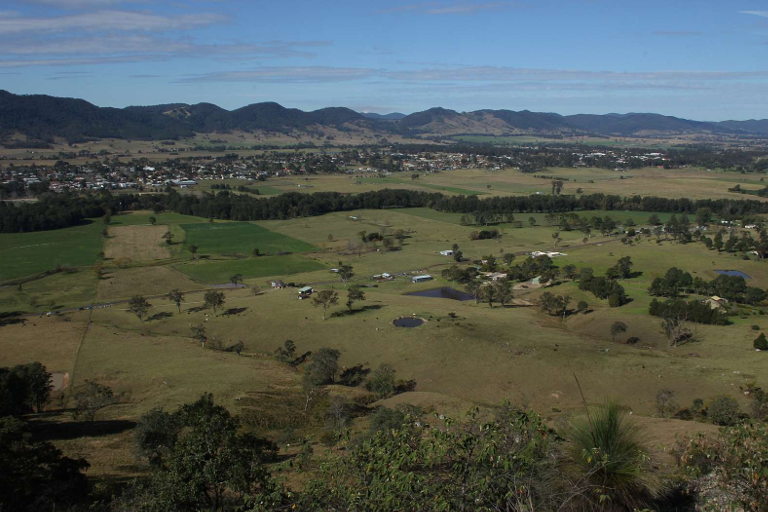On Friday, as Tasmanian forests continued to burn, Queensland faced unprecedented floods, and New South Wales remained in drought, a crowd quietly gathered in a Sydney court room.
Nervous excitement filled the room as it overflowed with people eager to hear the outcome of our client’s case. Tears began to flow as the court delivered its verdict – the Rocky Hill coalmine planned for the beautiful Gloucester Valley was refused.
Judgment took all of five minutes, but it’s the reasons for rejection of the mine that have made international news.
The chief judge of an Australian court of superior jurisdiction has, for the first time, found that a coalmine ought to be refused for its impact on climate change. And the decision comes just in time.
So how did we get here?
The mine was rejected by both the planning department and the independent planning commission. Yet mining company Gloucester Resources was given special rights by the planning minister to appeal to the land and environment court for approval. A “second bite at the cherry” usually denied to objectors.
Community group Groundswell Gloucester wanted to be heard by the court on the social impacts of the mine and, significantly, on climate change. My office agreed to represent them. So in April last year, we went to court with barrister Robert White to make an application on behalf of Groundswell Gloucester. We were expecting a fight, and we got one.
The mine labelled our client’s climate case “a sideshow and a distraction.” They complained that we were attempting to raise “global geopolitical issues” in a court of local jurisdiction. Big coal went all out to try and stop a grassroots community group putting climate science before the court. And Friday’s judgment tells us everything we need to know about why.
The main case was heard over several weeks in August, but it was many months in the making. Reports were prepared and conferences held, as scientists examined each other’s work. During the hearing, all the experts were grilled under cross-examination.
Complex scientific and legal argument dominated the hearing. But it was emeritus professor Will Steffen who cut through the technical jargon and explained the science in terms we can all understand. He told the court: “Step number 1, if you’re really serious about the Paris targets, is no new fossil fuel developments. I mean, it doesn’t take an Einstein to work that out, that you cannot reduce emissions by increasing them.” And this, in essence, sums up our client’s case.
The 700 paragraph judgment carefully analyses the facts and evidence, and applies orthodox legal reasoning to the findings. Ultimately, the court concludes that the Rocky Hill coalmine is in the “wrong place at the wrong time.” The “wrong place” because of its impact on the Gloucester Valley. And the “wrong time” because the mine will increase global greenhouse gas emissions “at a time when what is now urgently needed … is a rapid and deep decrease in emissions.”
We have reached a global tipping point on climate change. There is a limit to the amount of carbon that can safely be emitted into the atmosphere and we’re nearly there. As professor Steffen explains, most of our fossil fuel reserves must remain in the ground, unburned, if we are to stay within the global carbon budget and have any chance of avoiding catastrophic climate change.
Our clients’ landmark climate case was brought in the right place, and just in time. The right place, because a large portion of the world’s coal lies beneath Australian soil. And just in time, because it gives communities the legal and scientific backing needed to push for the rapid phase out of coal that has now become so urgent.
The International Panel on Climate Change says we must phase out most coal globally by 2030. That’s now 11 years away. It’s time to choose between coal or a stable climate. Because we can’t have both.
No longer can it reasonably be said that “this mine won’t make any difference” or “Australia’s actions don’t matter”. As one of the world’s largest producers of coal, Australia supplies the very product that is pushing our climate over the edge. And the time has come to stop.





